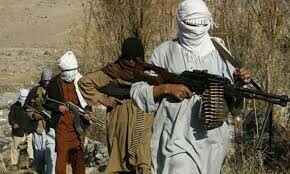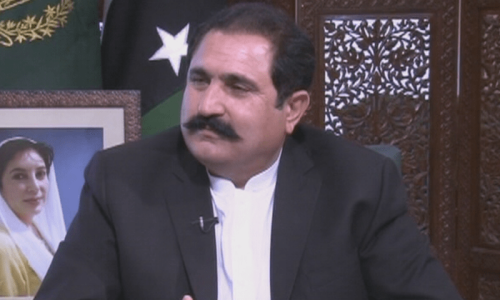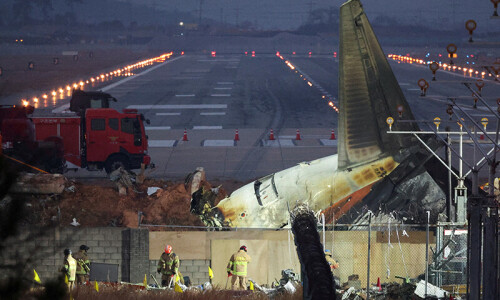KARACHI: Academic and author Dr Hassan Abbas has stressed the need of constant engagement with the leadership of Afghan Taliban, saying that they fully backed the outlawed Tehreek-i-Taliban Pakistan (TTP) which had now taken the form of a “plague” in Khyber Pakhtunkhwa.
Delivering a talk on ‘The Return of the Taliban’ at the Pakistan Institute of International Affairs (PIIA) here on Friday, he said that it had become quite clear that the Afghan Taliban and the TTP were two sides of the same coin.
He said the thing most needed to be done was constant dialogue and engagement with the Taliban leadership for adjustment with them as no other option seemed viable because the Afghan Taliban and the TTP had become stronger and more organised than they were before and, therefore, difficult to be defeated by a military action only.
He started his talk by going into the details of three different versions of the Taliban which he considered important for a better understanding of their current regime in Afghanistan.
Academic Hassan Abbas stresses the need for constantly engaging Taliban leadership in Kabul
The first ones, which he called Taliban 1.0, were the initial group led by Mullah Omar who had limited resources, organisation and war skills as well as understanding of politics, according to him. Their second version/generation, Taliban 2.0, had become expert in fighting insurgencies while Taliban 3.0, the current regime, is very organised. They also had good understanding of politics and they were engaging with the West in a coordinated manner, said Dr Abbas.
And the current regime knew that in case they’re attacked and forced to flee, they would need refuge in the border areas of Afghanistan and Pakistan. For that, they needed the TTP to be in those areas as a backup plan, Dr Abbas added.
And the TTP now seemed to be getting out of control in KP areas, he said and, to substantiate that argument, referred to the deaths of policemen and military personnel in terror attacks by the banned outfit that are taking place on a daily basis, according to him.
“But as Pakistan has now put pressure, Afghan Taliban are somehow showing that they want to control the TTP but it’s their clever moves that they are using mostly,” he said and spoke of their [Afghan Taliban’s] demand of millions of rupees from Pakistan to move the TTP militants into Afghanistan’s North.
He said the narrative of “Good Taliban vs Bad Taliban” spread in the country had proven false. Pakistan had supported and facilitated the earlier Taliban and there was a theory behind it. But things had turned out differently than what was expected, he said, adding that constant engagement with the Taliban was necessary as that always helped in better evaluation of the other side.
However, he also said that some positive change was also there in the current Taliban as a large number of them, especially from the side of Kabul area, were supportive of girls’ education among other positive things. But it was the “Kandahari group” and those from other Southern areas that were the “ideological masters” who opposed such positive things, including women’s education, he said and emphasised that there are radical differences between them but they’re still united.
In this regard, Dr Abbas also stressed that each country was engaging with the Taliban government for its own specific agendas but if all countries put a collective demand, the Taliban would agree to allow women the right to education.
In the end, he also spoke of the plight of the Hazara community that has been a victim of “genocide” by the Taliban militants for years.
Earlier, PIIA chairperson Dr Masuma Hasan introduced the academic.
Published in Dawn, September 7th, 2024
















































Dear visitor, the comments section is undergoing an overhaul and will return soon.